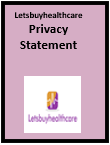| Treatment | Description | |
|---|---|---|
| Late Dating Pregnancy Scan |
Dating the pregnancy is still fairly accurate. This scan does not include umbilical artery Doppler or amniotic fluid index volume calculations as the pregnancy is too early for these assessments. Please note that this scan:
Is not the Nuchal Translucency / first trimester screening / Down Syndrome scan
Cannot calculate fetal weight at this stage
Cannot exclude all chromosomal or anatomical abnormalities
|
|
| First Trimester Screening (Blood Test + Nuchal Translucency Scan) |
Blood tests are carried out at 10 weeks pregnant and the scan is performed at 12 weeks. This approach increases detection rates up to 94%. This requires 2 separate visits.
All pregnant women have a small chance of having a baby with a physiological disability or syndrome, such as Down Syndrome.
The First Trimester Pregnancy Scan Screening is a risk assessment test to determine whether your chances of having a baby with Down Syndrome (Trisomy 21), Edward’s Syndrome (Trisomy 18) and Patau Syndrome (Trisomy 13) are high or low.
The components of First Trimester Screening include:
Maternal age Presence or absence of major fetal abnormalities on ultrasound Nuchal Translucency (fluid measurement behind the fetus’ neck)
The level of two proteins in your blood (Free-ß-hCG and PAPP-A)
|
|
| Managing workplace stress |
Delivered on site and tailored to meet the needs of your organisation
For organisations taking active and effective steps to support the positive emotional and psychological health of their employees
An intervention of real enduring change
|
|
| Colonoscopy |
Here you will find more information* about what colonoscopy is and typically, when it is used.
What is Colonoscopy?
A colonoscopy is a procedure that allows the endoscopist to look directly at the lining of the large bowel or (colon). It is performed using a thin tube (colonoscope) with a camera and a light on the tip which is used to look at the area being examined. The procedure is the most accurate way we have of looking at the large bowel (colon) to establish whether any disease is present.
Do you need a Colonoscopy?
A colonoscopy is a procedure that allows the endoscopist to look directly at the lining of the large bowel or (colon). It is performed using a thin tube (colonoscope) with a camera and a light on the tip which is used to look at the area being examined. The procedure is the most accurate way we have of looking at the large bowel (colon) to establish whether any disease is present.
Do I need a referral letter from my GP to get a Colonoscopy?
Typically you WILL need a referral letter from your GP for a colonoscopy.
|
|
| Detailed Anomaly Pregnancy Scan |
This scan is probably the most important diagnostic scan that takes place in a pregnancy.
The fetus is the correct size to have all the organs assessed so that the sonographer can see whether your baby has an obvious defect such as spina bifida or a cleft palate. If you are concerned about chromosomal problems this scan can detect subtle markers that may suggest that your baby is at higher risk for these syndromes. Examples of these markers are thickened skin behind the neck, excess fluid in the kidneys, short arms or legs, bright areas in the heart or abdomen or cysts in the brain.
Most babies are normal so this scan provides reassurance to the majority of patients. It is also important to note that this is a screening test and that positive or negative findings detected during the scan cannot guarantee either outcome.
This scan cannot exclude all abnormalities and syndromes.
|
|
| Baby Gender Determination Scan |
This scan:
Determines the sex of your baby
Assesses the location of the pregnancy to make sure that it is the correct place
Checks that the baby is viable by looking for the heart beat
Measures the heart rate of the baby
Measures the head, abdomen and femur bone to check for normal foetal growth
Identifies some of the main organs to make sure that they appear normal for this gestation
Looks at the amount of amniotic fluid
Assesses the placenta and umbilical cord vessels.
This scan:
Cannot calculate foetal weight under 20 weeks
Cannot exclude all chromosomal or anatomical abnormalities
|
Cart
Find a treatment you need
You can search for a specific treatment by entering the treatment name in the search bar below. From there you will be directed to page listing all the providers of that treatment.
Details on cost and wait times will be given here. Simply select your chosen provider and book your treatment.











